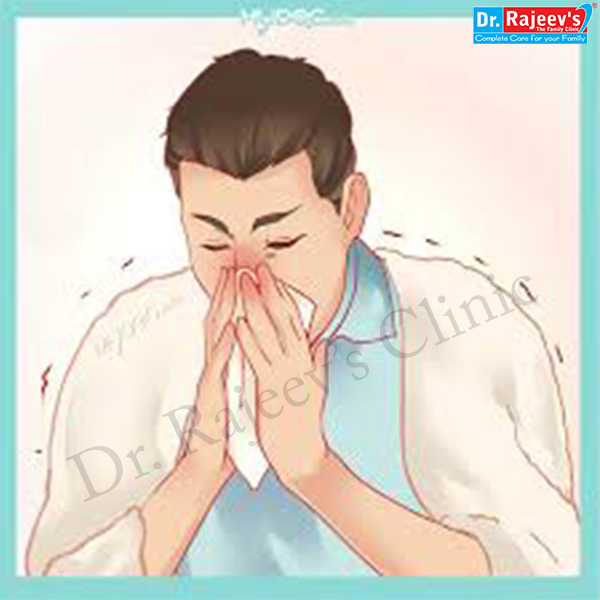

It is an acute inflammatory contagious disease involving the upper respiratory tract.This is a highly infections illness comprising of a mild systematic upset but having promitent nasal symptoms. Infection can occur from close personal contact or from droplets. The incidence of infections is high in the early stages of the infection and the spread is facilitated by overcrowding and poor ventilation. The condition can persist for upto a week. Psoric and pseudo psoric constitutions are more susceptible to this infection.
Symptoms can vary, but some common causes include:
Rarer symptoms include:
People with a weakened immune system may develop more severe symptoms or a secondary infection, such as pneumonia. If a person develops more serious symptoms, they should seek medical help.
Over 200 different viruses can cause cold symptoms, and rhinoviruses are responsible for most of them.
When a virus enters the body, the immune system tries to fight it. In a person with a strong immune system, symptoms may not develop.
However, if the immune system cannot fight off the virus, symptoms of infection will appear.
Colds can affect anyone at any time of year, but some factors can increase the risk:
A cold is not usually serious, and colds mostly disappear after 7–10 days. Sometimes, however, complications can occur. These are most likely to affect those with a weakened immune system.
They include:
A cold can worsen the symptoms of asthma and chronic obstructive pulmonary disease (COPD) which includes emphysema and chronic bronchitis.
ACONITE : Very useful for sudden onset from exposure to cold or cold dry northern winds. There is fluent coryza with frequent sneezing accompanied with inflammation of the throat with high fever and spasmodic cough. There is tightness and oppression of the chest.There is great anxiety and restlessness, with a frightened expression.
ALLIUM CEPA : Usseful for acute coryza with steaming eyes and nose, with headache.There is frequent sneezing with profuse, acrid discharge from the nose.Useful for tickling in the larynx.Mostly recommended when symptoms occurs after exposure to damp, cold weather.
EUPHRASIA : Useful for acute corryza having excoriating lachrymation with bland nasal discharge.
ARSENIC ALBUM : Useful for acute corryzain those persons who always takes cold in the nose and sneezes from every change in the weather. There is thin, watery discharge from the nose wit excoriation of upper lip, while the nose is stuffed up all the time. Useful for itching, burning and watering from the eyes.There is burning accompanying all symptoms which is relieved by heat.There is marked restlessness and anxiety.Given when patient feels thirsty , drinks small quantities of water at short intervals.
GELSEMIUM : Useful for acute corryzais when cold develops several days after exposure, usually in winters. Given when catarrh is hot, watery & excoriating.There is teasing and tickling cough, better near the fire.
AMMON CARB : Very useful for winter catarrh.Suited when nose is stopped at night, worse 3 to 4 am.Helpfull for dry, tickling cough with hoarseness, nostrils are sore and raw.
SABADILLA : Indicated in spasmodic sneezing with a running nose.there is copious watery nasal discharge with fluent coryza.Helpful when corryza is worse from smelling flowers.
RL12